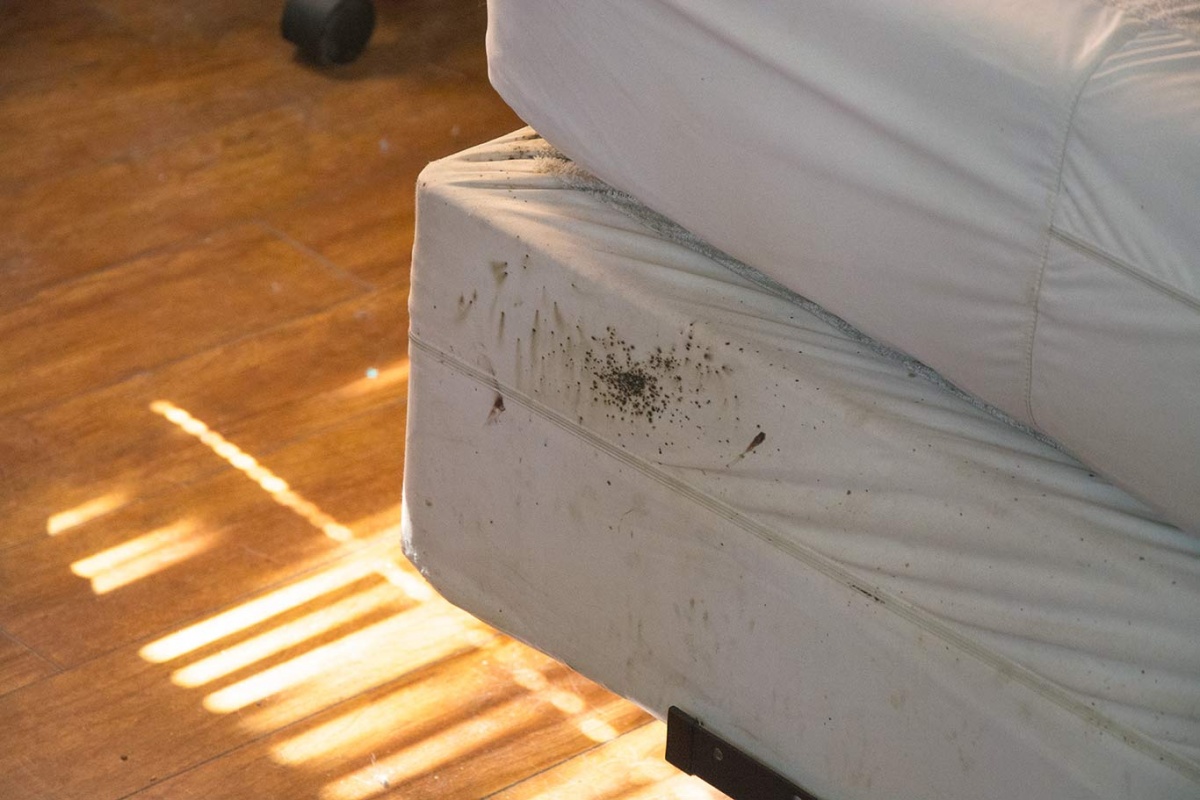Top 20 DIY Pest Control Tips From The Pros
Effective Methods From The Experts

Homeowners across the country state that their home is one of the most important assets they own. That is why many spend the time and money to ensure that their homes are as pest-proof as possible. Ensuring that pests are out of your home and around your property can help protect not only your home’s value but also your owns safety. The following includes 20 DIY pest control tips from Adam Love ,a professional exterminator from a local pest control company based in Sydney.
20. Seal Any Gaps
One of the first things you need to do is look around your home for openings/cracks. This is prevalent within older homes as years of weather cause windows and door frames to expand and crack. Sealing these areas can reduce the number of pests that make their way through your larger openings. Here’s the areas where cracks are commonly seen:
- Doors & Window Corners
- Pipes & Wires Installed
- Stoops & Porches
- Exhaust Fans Vents
19. Keep Firewood Away from the Home
Termites are one of the worse pests to have within your home. They can cause severe damage without you even noticing them. So, what can you do to detour them? An important step you take is to begin removing any firewood you may have and storing it far away from your home.
18. Fresh Herbs and Mosquitos

If you enjoy the outdoors but don’t want to deal with mosquitoes ruining the party. You must prevent mosquito from breeding at your own backyard. Adding fresh herbs to coals can detour mosquitoes from entering the space. Herbs that are effective mosquito repellent:
- Sage
- Rosemary
- Citronella
- Catnip
- Lavender
17. Window & Door Screen Repairs
It may seem like door and window screens are only used to enjoy the fresh air without having to keep your door open. However, they are also very helpful in keeping pests outdoors. That is why it is recommended to inspect all your screens and repair them.
16. White Vinegar
Ants are smart creatures. This is especially true for when it comes to finding food. If they find food around your home, they will leave a scent for other ants to follow. Even if you clean the area, the scent remains. Adding white vinegar is a great chemical to use to remove that scent and detouring other ants from entering your home.
15. Garage Weather-stripping
One of the most common areas that homeowners miss when getting the pests away is the garage door. The garage door is a huge opening, and thus must ensure that weather-stripping is in functioning order.
14. Wire Cloches
Pests come in all shapes and sizes, and they don’t have to be small insects to cause damage to your property. Those with home gardens understand the importance of protecting their gardens from small animals such as rabbits and certain types of birds. A great protection to use are wire cloches.
13. Copper Mesh
The outside of the home may also have cracks present. Placing copper mesh into these holes is a great way to seal areas where you can’t just place sealer into it. For many homeowners, this is also a cost-effective way to reduce pests without having to change out multiple bricks or panels.
11. Baffles
Although cute, squirrels can really do some damage if they are allowed to climb around your home. This is especially true for those who have birdfeeders on their porch or on a tree. Baffles are used to keep squirrels from being able to climb onto these areas and either get to the upper areas of your home or onto a birdfeeder.
10. Dehumidifier & Spiders
There’s no doubt about it; the basement is a perfect breeding ground for spiders. Acquiring a dehumidifier and setting it to at least 40% humidity level, you will detour spiders from accumulating in your basement.
9. Save Your Coffee Grounds
An interesting fact is that many pests hate the smell of coffee grounds. So, before you go throwing away that filter, you may want to simply toss it around where you think the pests are coming through.
8. Crawl spaces & Nesting
Pests love to hide within areas that are dark and where they are not going to be disrupted. One of the most common areas that you will find pests are crawl spaces. That is why it is important to look into these areas with a flashlight and remove any nests that may be located within them.
7. Hide & Protect Pet Food
Our dogs and cats love their food, but pests also love it as well. Remember, pet food is still food and will attract certain insects and bugs to them. To ensure that pests don’t attack your dog’s food, homeowners are recommended to close off bags properly and put away food during the night when everyone is asleep.
6. Dryer Vents
Another spot where homeowners don’t tend to think about is the dryer vents. These are literal pest expressways into your home. You can detour pests from coming in by ensuring that the wall seal is in place and that no nests are growing around the entrance.
5. Start the Trimming
One of the ways that pests tend to get into the home is by simply walking into it through a variety of objects. For example, overgrown plants that lay against your home can be the access point for many of the pests that you see. That is why it is recommended to begin to trim any shrubs, plants, or trees that rest on your home.
4. Preventing Bed Bugs

If you have been to a hotel or someone else’s home lately, then it is critical that you clean all your clothes before lying on your bed. This is a great way to keep bed bugs from entering your home. You can also use these oils to defend yourself from these nuisance:
- Peppermint oil
- Clove oil
- Thyme oil
- Tea tree oil
- Eucalyptus oil
3. Clean Seasonal Clothing
If you live within a desert climate, it’s likely that you don’t wear jackets as often as most people. However, it is still important to clean them every few weeks as clothing is a common spot where spiders and other small pests reside.
2. Chimney Guards
Your chimney is a wide-open area for pests to walk right into your home. A great way to reduce small pests from coming in is to install a chimney guard. This will prevent larger animals from entering your home and dropping off a few critters, such as fleas, along their way out.
1. Clove oil & Ladybugs
Although very pretty to look at, ladybugs can quickly take over a space. If you have a swarm of ladybugs within your home, you may place down some clover oil. Ladybugs absolutely hate the smell and will remove themselves from the area. As you can see from the information above, there a plethora of ways to keep the pests at bay. Depending on your particular issue, it is important to attempt to apply the tips listed above before spending hundreds on an exterminator.
Conclusion
Depending on your particular issue, it is important to attempt to apply the tips listed above before spending hundreds on an exterminator. They are easy to follow and highly effective. See how it goes!



